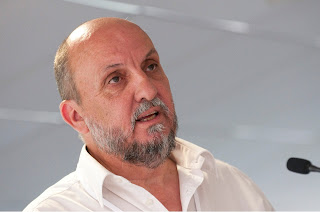Edmund Burke is quoted as saying "The only thing necessary for the triumph of evil is for good men to do nothing." As professionals, as carers, as individuals and as a community we all have a responsibility for safeguarding those who are the most vulnerable and at risk in our communities whether they be at home or in other health and care settings.
Abuse comes in many forms including physical, psychological and emotional, financial, sexual and neglect. Almost 40,000 older people are abused in their own homes by people they know and trust.
Institutional abuse has recently gained a higher profile due to press coverage, large police investigations and public enquiries. Recent examples include North Staffs, the Tawel Fan ward in North Wales, Winterbourne View, and Operation Jasmine just to name a few. All of these were situations where very vulnerable people relied on the care, treatment and support of others. They and their families placed their trust in people who were supposed to 'care' and this trust was betrayed. These cases should never have happened and I would like to think they would never happen again. We must all learn from what has happened and ensure that history does not repeat itself in another setting.
I can't believe, because it would be too difficult to make sense of, that those entrusted with the care of others in these cases would have set out to cause serious harm. More likely is that fractured systems, poor leadership, understaffing, lack of training, no one listening to concerns, all contributed to people receiving unacceptable levels of care and in some cases suffering abuse. As a caring society we cannot allow this to happen again. We all have a responsibility for safeguarding others, for treating people with dignity and respect, for upholding people's human rights, for believing someone when they tell us what has happened to them or for reporting concerns.
In April 2016 the Social Services and Well-being Act will be implemented and section seven is about safeguarding. There will be duties on local authorities and other statutory agencies to make enquiries and undertake appropriate action, to co-operate and provide assistance with safeguarding cases, to share appropriate information and there will also be a duty on individuals to report concerns of abuse. This is landmark legislation as safeguarding adults will be put on a statutory footing for the first time. Although it will not resolve all the abuse happening in our society it will provide agencies with improved tools. We must all support the implementation of this legislation and ensure that we do everything we can to safeguard those in our care. We must listen, reassure, believe, and act. We must not assume that others will do something as the consequences could be unthinkable.
We must all act to ensure that Edmund Burke's quote does not become a reality.
Louise Hughes
Safeguarding Manager
Age Cymru


